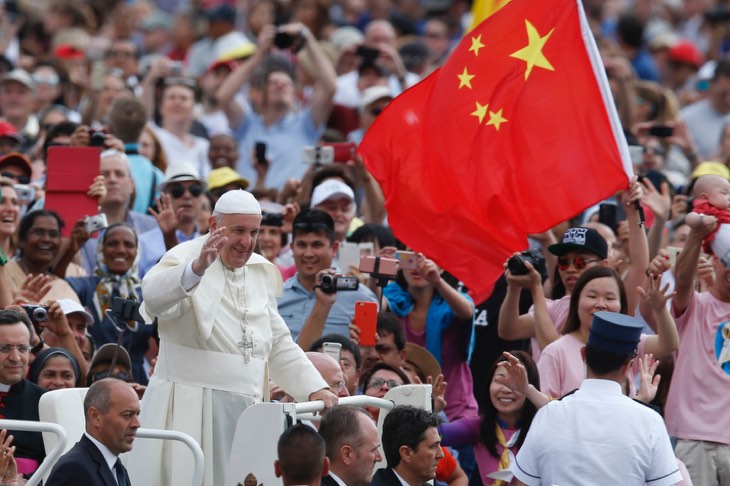In the last decade or so there has been a thawing of relations between China and the Holy See. Sure, China can still be harsh in its treatment of some Catholics and the Vatican continues to maintain diplomatic relations with Taiwan, but a change is coming. Earlier this year, there was talk of a potential deal between Beijing and the Vatican, which would see China recognising the Pope as head of Chinese Catholics, in return the Vatican would give the Chinese government a say in the appointment of bishops. This week, we hear from two sources close to the negotiations that the deal is to be signed imminently – before the end of September.
It’s no secret that Pope Francis has designs on China. Two years ago, he said that he would visit China if given the invitation, which rankled some. For a country that kicked out papal diplomats in 1951, Francis was certainly turning the other cheek with China. From his perspective, the ‘market’ – if indeed one can call a religious community that – of Chinese Catholics is promising. There are around ten million of them. Many of them worship at so-called ‘underground’ churches – discreet gatherings of the faithful, often in private homes, that are unregistered with the state – just to avoid pledging ultimate loyalty to Beijing rather than the Pope. Others worship at state-permitted churches, led by priests who are appointed and approved by the Communist government.
Under the new deal, Beijing would finally recognise that the Pope is the head of the Catholic Church in China. The Pope would also have veto power over the bishop nominees from the government, and one large and fiercely loyal underground Catholic community in the north of the country would be given formal recognition. In return, Beijing would like the Pope to recognise seven excommunicated Chinese bishops, who had been government-appointed. Rather painfully, the Church would have to ask two loyal underground bishops to step aside to do this. If this deal is to be signed imminently, it would be the clearest sign yet that Francis is willing to walk over his own to work with China.
But putting aside the talk of betraying Catholics (and many have already accused the Pope of doing so), the Taiwanese government will be despairingly watching the latest developments. Its government in Taipei is looking lonelier every month as its allies flock to its communist rival.
Since its creation, communist China has steadfastly broken off diplomatic relations with any country that recognises Taiwan as a country (rather than as a badly behaved province, as China does). But China has never made such a point of pulling states to its side as it is doing now.
Whether it’s because President Xi is more assertive on foreign policy (which I’ve written about before), or because the current Taiwanese President is particularly anti-Beijing, in the last six years, Taiwan has lost six allies to China (El Salvador, the Dominican Republic, São Tomé and Príncipe, Panama, Burkina Faso, and Gambia), which is more than it had lost in the two decades before.
Beijing is making a concerted effort to use bundles of investment and foreign aid donations to encourage breakaways. Now only 17 states in the world recognise Taiwan as a country, including the Vatican.
With news of this deal, it looks as if the Vatican is next. If it passes, there is no doubt that Beijing would want more – and it seems like Francis would be happy to give that.







Comments